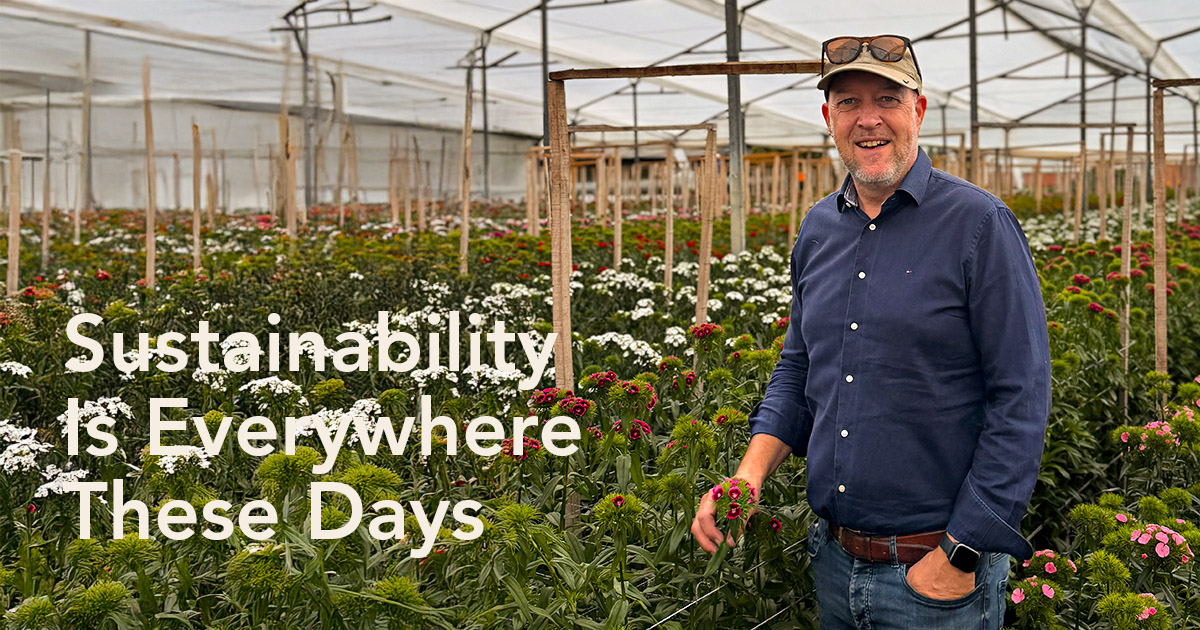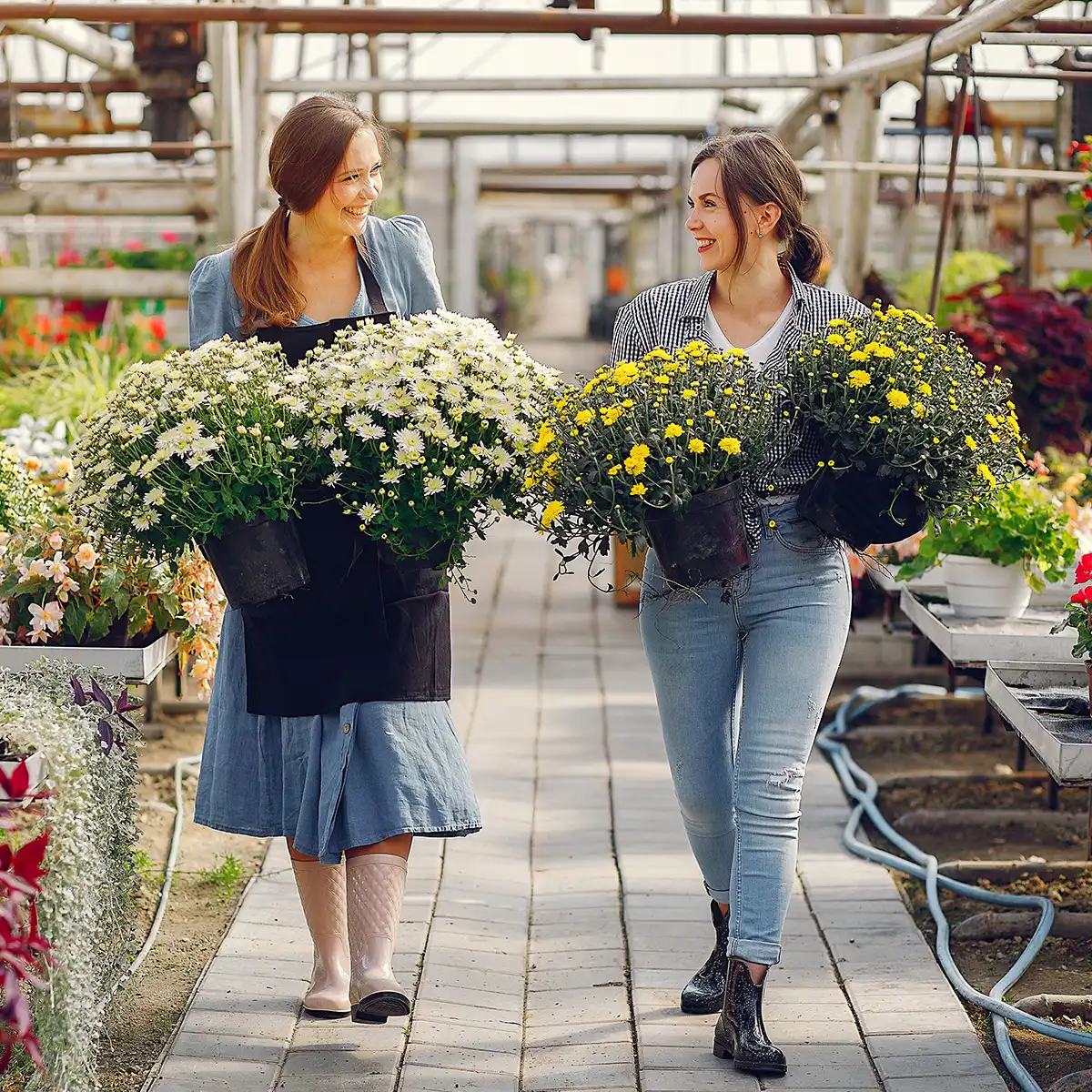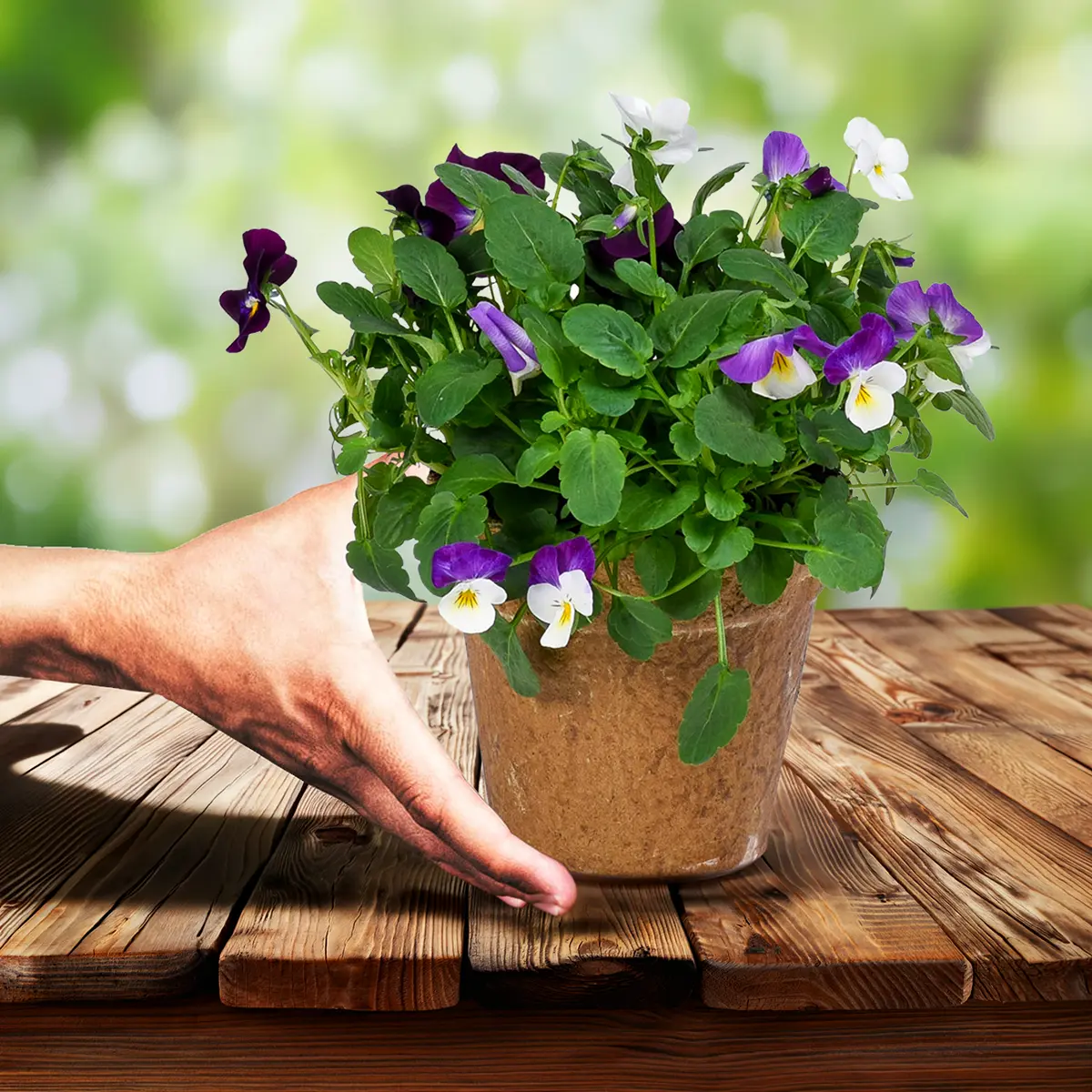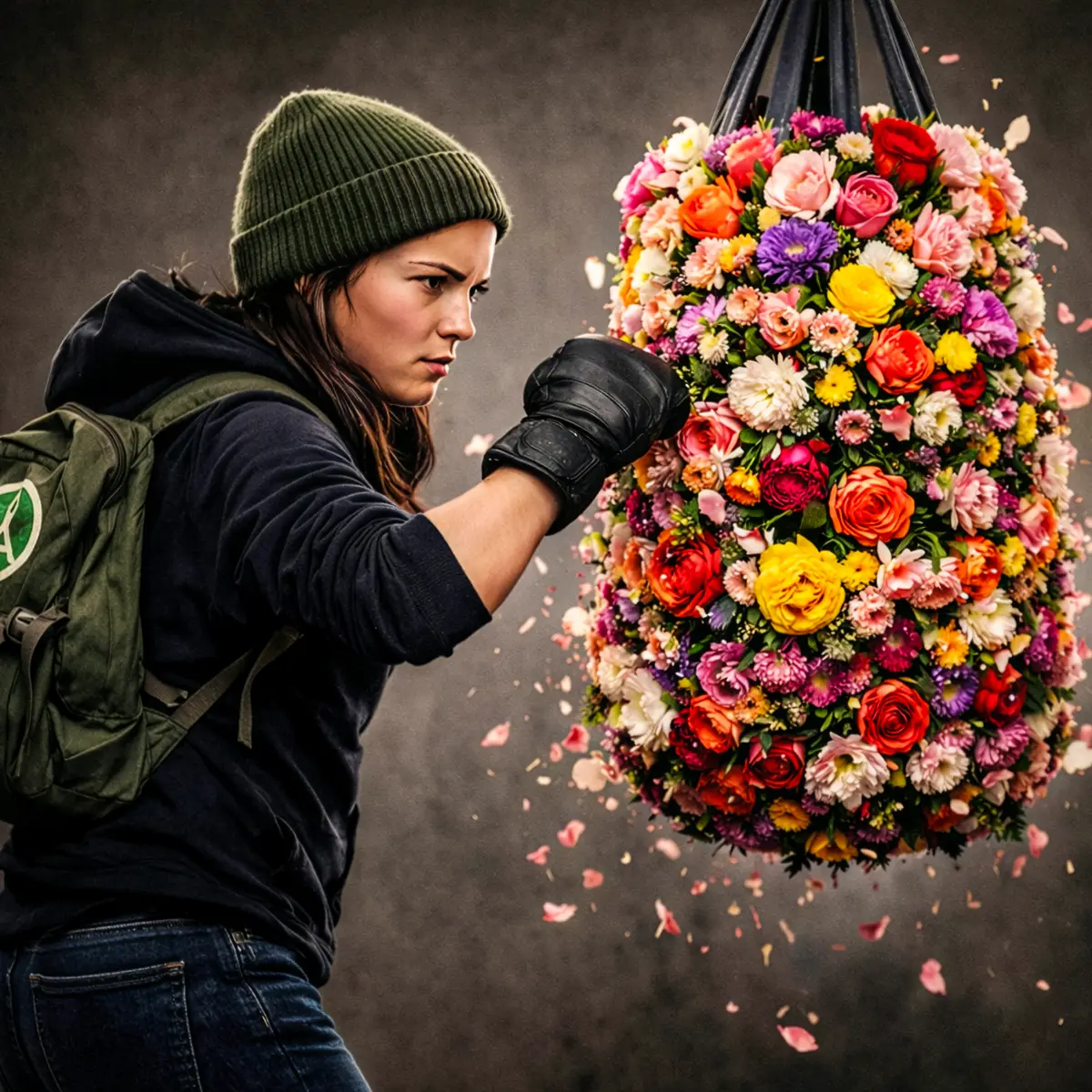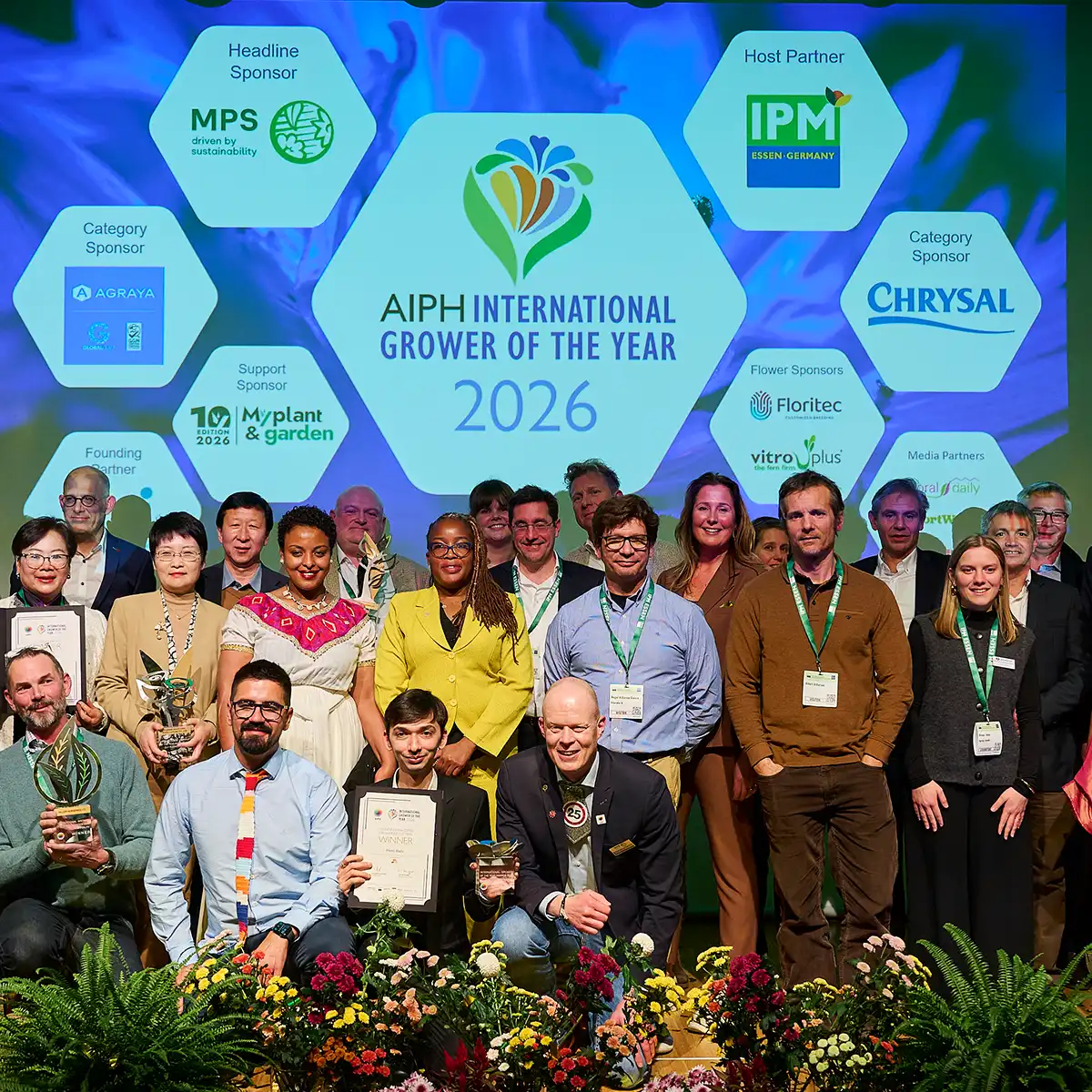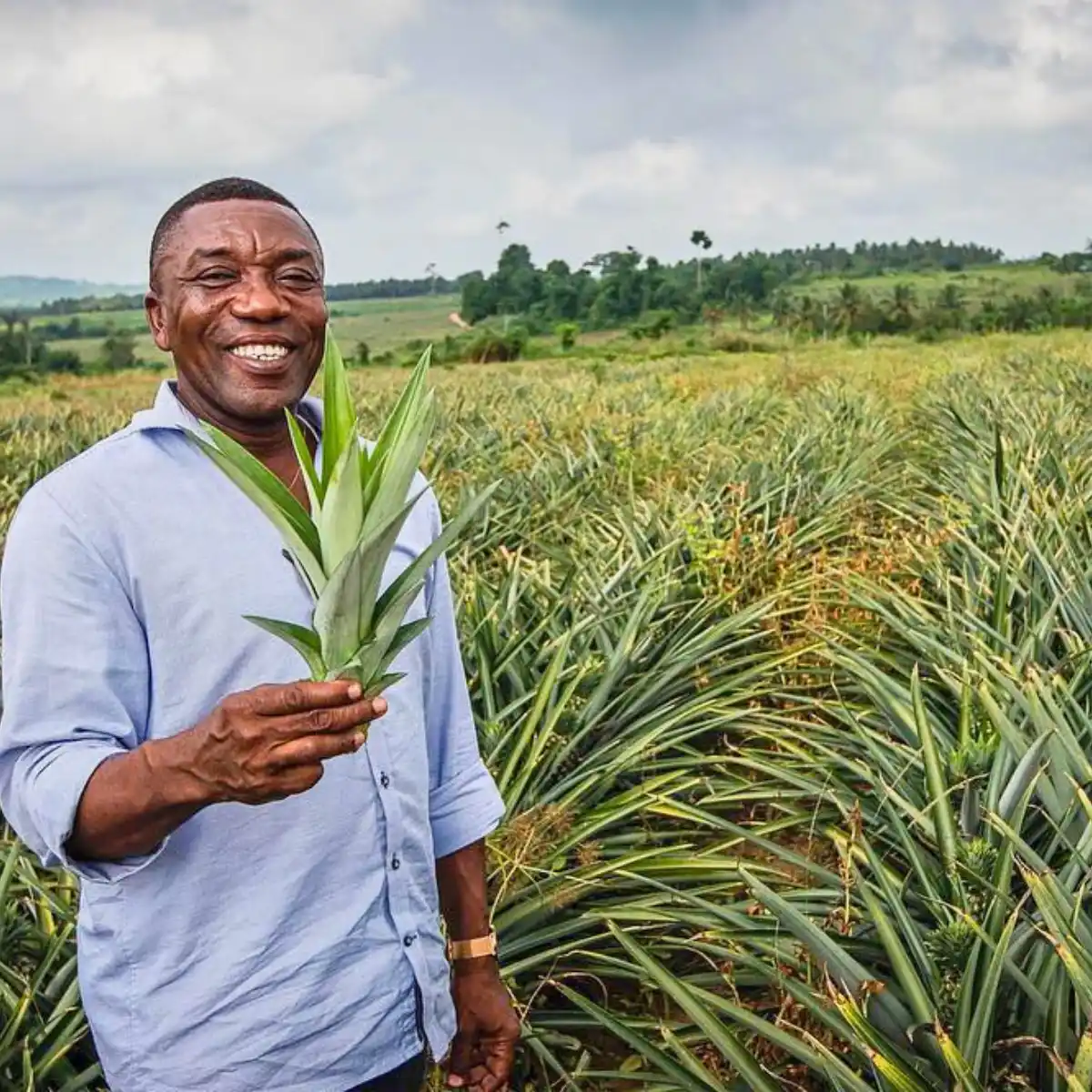Anyone who works in the flower and plant sector knows: sustainability is everywhere these days. But how do you ensure that all those sustainability ambitions do not get bogged down in good intentions, loose certificates, and complicated Excel sheets? Jeroen Oudheusden, who has been involved in the Floriculture Sustainability Initiative (FSI) since its inception, openly explains how the sector is working on clarity, trust, and above all, progress.
It Started With Confusion and Fragmentation
"We have to go back to 2012," says Jeroen when we ask him about the beginning of FSI. "The entire sector felt that sustainability was becoming more important, but there was no common story. Everyone did something, but no one knew exactly what the other was doing. And as a grower or trader, you were constantly lagging behind."

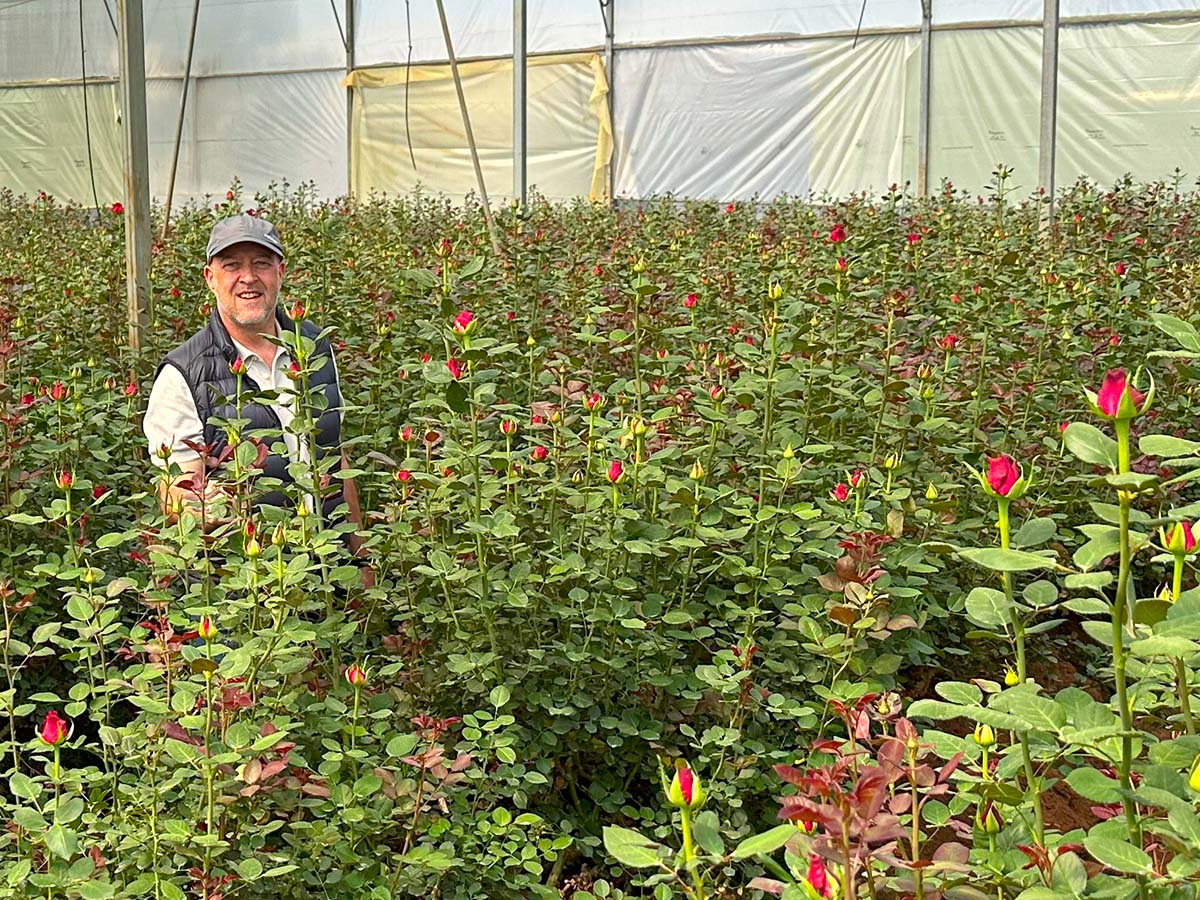
What followed was a meeting of various players in the sector: supermarket chains, florists, growers, exporters, and NGOs. They saw that the proliferation of requirements and labels was actually causing unrest. "As a grower, you could get all sorts of things on your roof around Valentine's Day or Mother's Day. Campaigns from NGOs, questions from retailers, demands from customers. But no one told you how to do it right."
The Basket of Standards: No New Quality Mark, but Clarity
FSI decided not to develop its own certificate, but focused on organizing existing standards. There were between 70 and 80 of them worldwide, ranging from consumer-facing marks such as Fairtrade to local initiatives and hollow labels.
"We set up a benchmark," Jeroen explains. "Based on clear criteria, both on the environmental and social level, we asked independent experts to assess whether a certificate was meeting content and audit requirements. Does it meet internationally accepted guidelines? Is the audit well organized? Are the definitions clear, for example, around child labor?"
Only certificates that passed this assessment were admitted to the FSI basket. There are now 16 of them. This is not because FSI does not like the rest, but because they simply do not meet the requirements. "And that is okay. Hopefully, a reason to improve. We just want clarity."
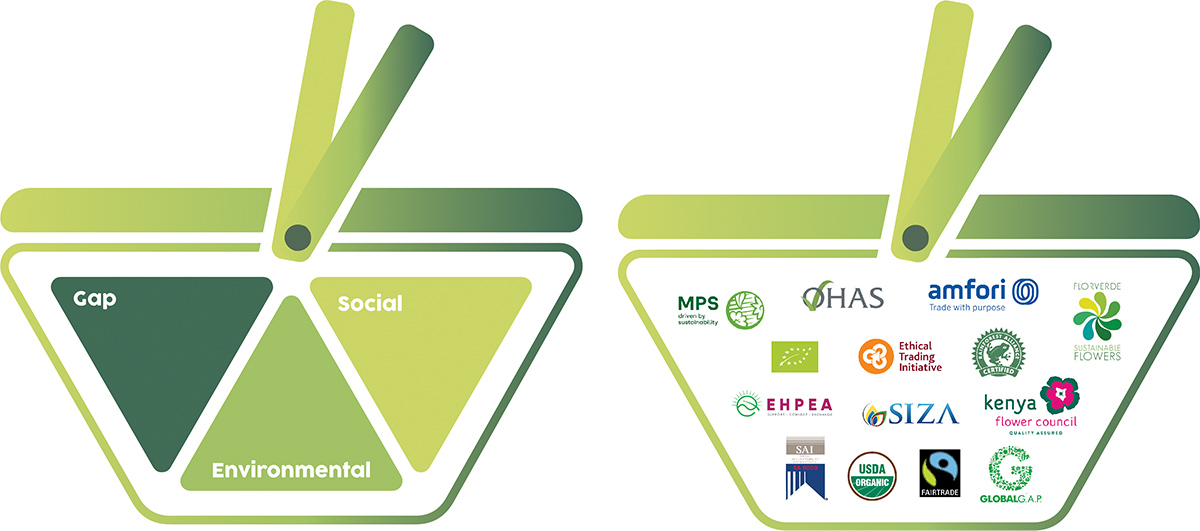
Why Multiple Certificates?
According to Jeroen, it is good that there are multiple standards. "A standard must be able to respond to local circumstances. What works in Colombia is different from what works in Ethiopia or the Netherlands. And competition between standards is also good. As long as they compete above the agreed baseline requirements."
FSI is therefore not a quality mark in itself, but a filter. "If you, as a grower or trader, work with a standard that is in the FSI basket, then you know: this has been checked."
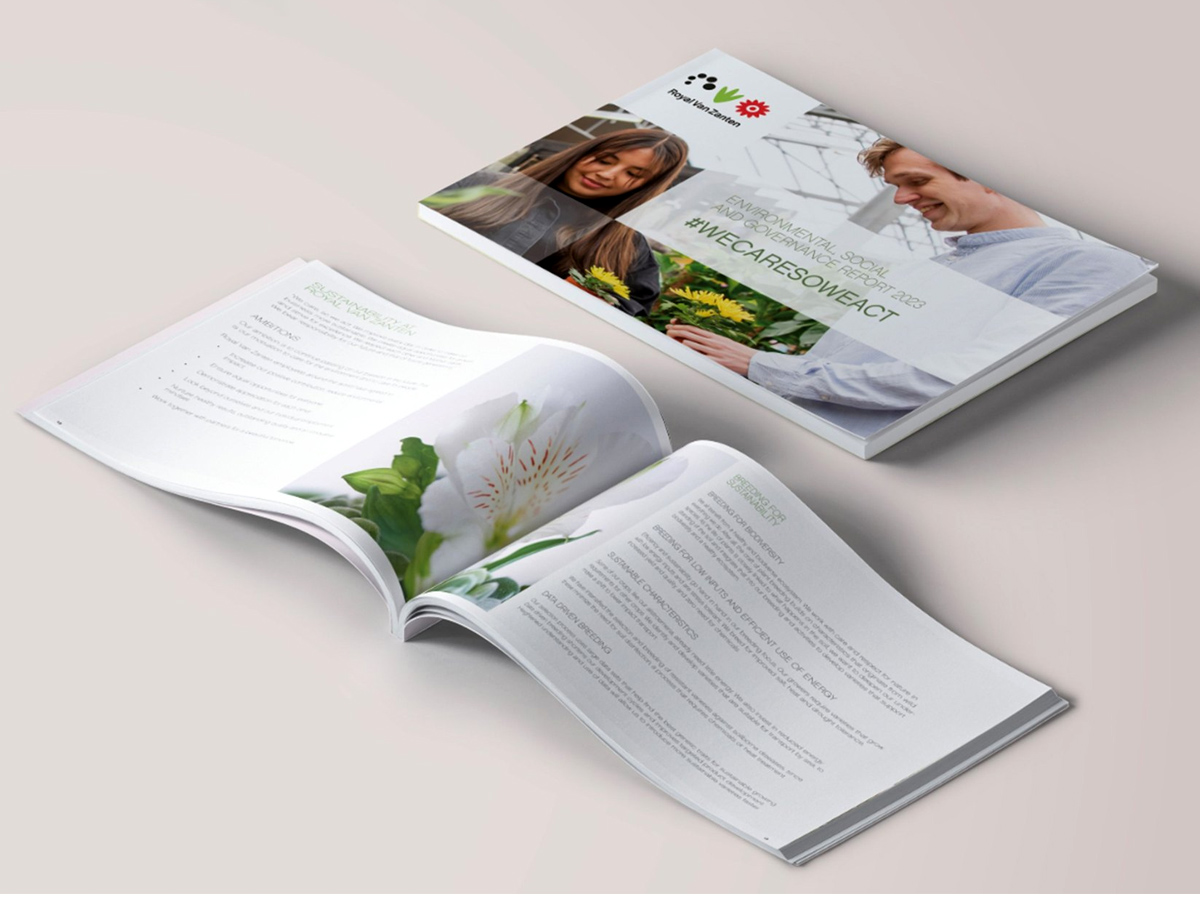
From Certification to Real Improvement
But it does not stop there. "Certification is nice, but it is not a goal. It is a means and license to operate. The point is that we actually improve and show progress."
And that is where data comes into the picture. FSI members should be able to demonstrate that the sector uses less water, uses fewer chemicals, and scores better socially. "Without data, you can't measure that, let alone improve it."
That's why years of work have been done on a link between growers, traders, and certificates. A lot of information is now digitally available, linked to unique GLN numbers (Global Location Numbers). "This allows us to see who produces what, how certified it is, and what is traded."
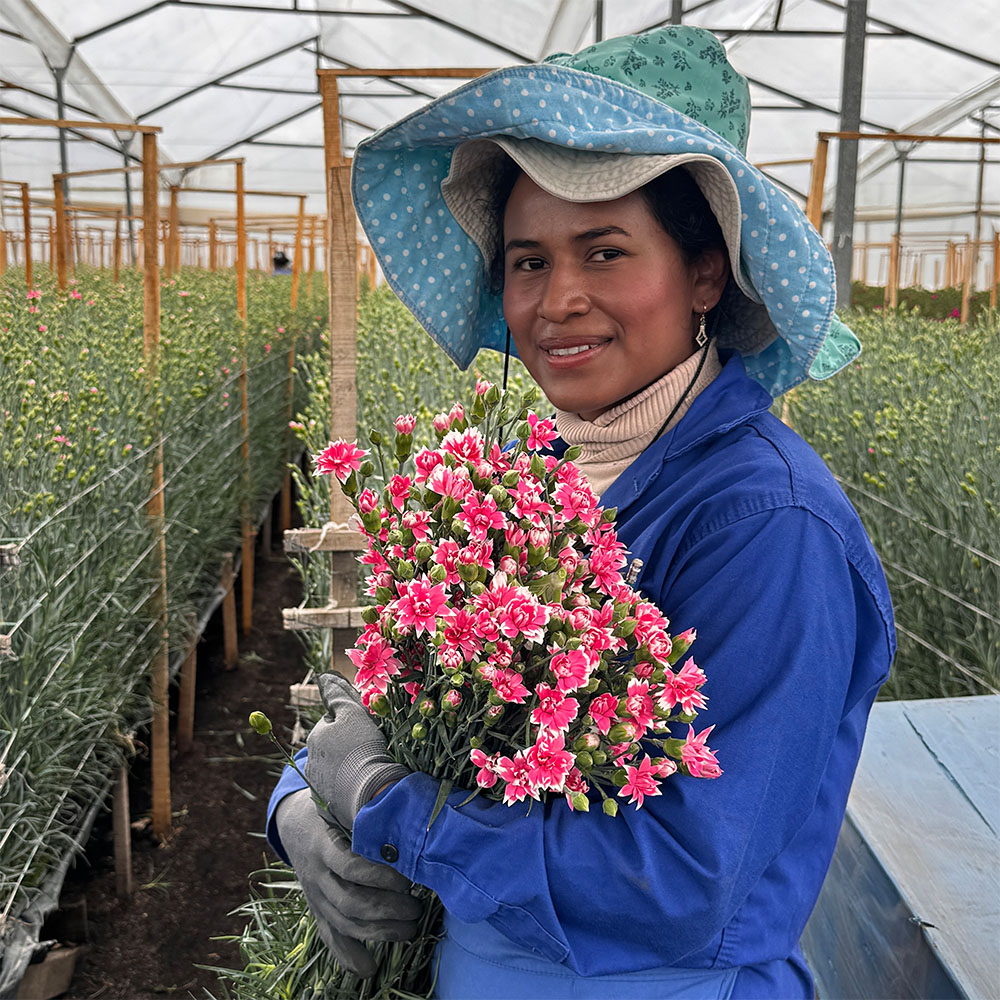
6,000 Growers in the System, but Only 20 Are Members
An interesting paradox: there are around 6,000 growers included in the FSI system, but only about twenty are official members. Jeroen: "Our goal has never been to have as many individual company members as possible, but to mainstream sustainability. And for that to happen, not everybody has to be a member, the sector organizations in production countries are great accelerators as well, and, in many cases, I would rather have a grower invest his money in sustainability than in all kinds of memberships."
What counts is that you, as a grower or trader, meet the FSI criteria and become FSI compliant. Membership is useful for involvement and participation, but it is not mandatory for participation. "We mainly want to be the accelerating engine that gets the sector moving."
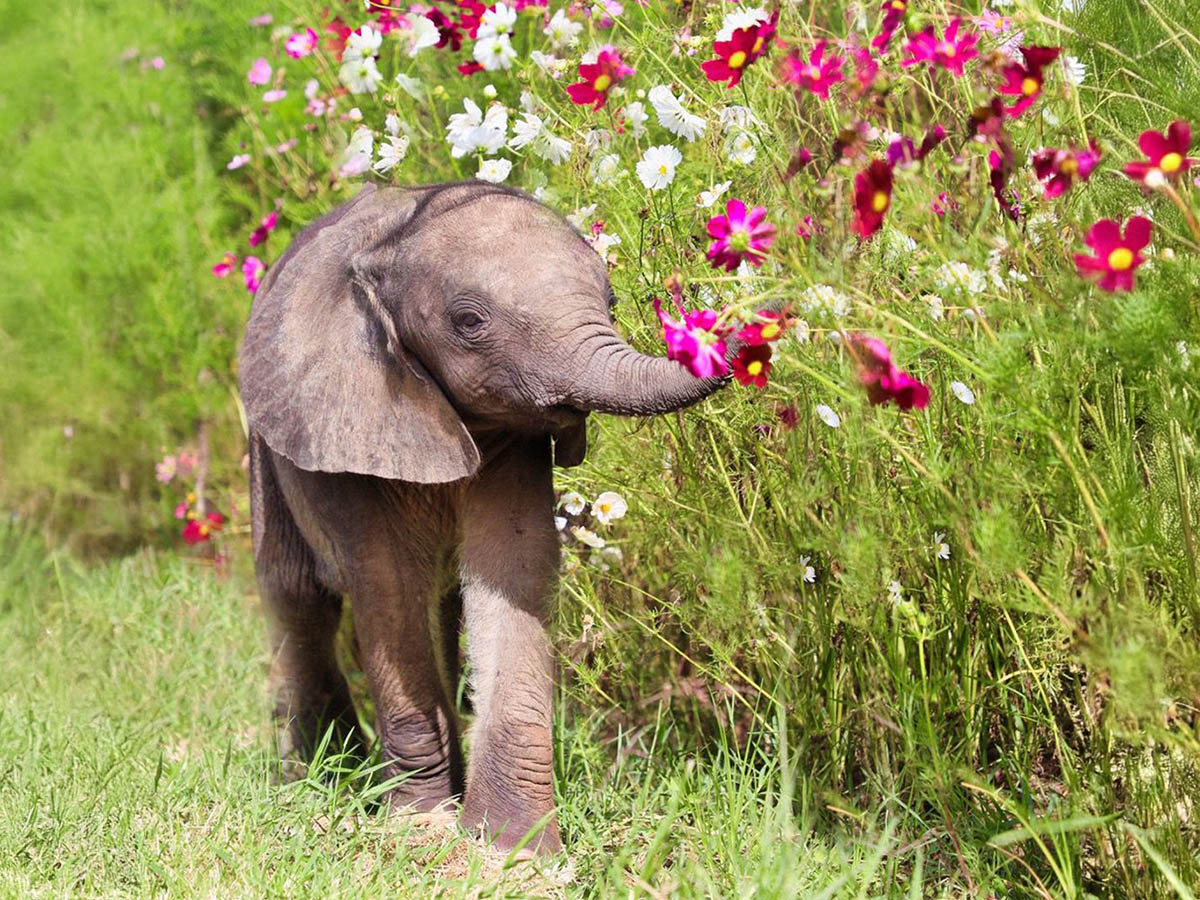
FSI Compact: Especially for Small-Scale Growers
A major point of attention is the small-scale growers, who often have difficulty with the requirements and costs of certification. That is why FSI Compact was developed, together with MPS and Global GAP. A simplified certification scheme that meets the requirements but is better suited to smaller business structures.
"You should not exclude any group," Jeroen believes. "They form an important part of the chain, in the global north as well as in countries such as Kenya, Ethiopia, and Ecuador."
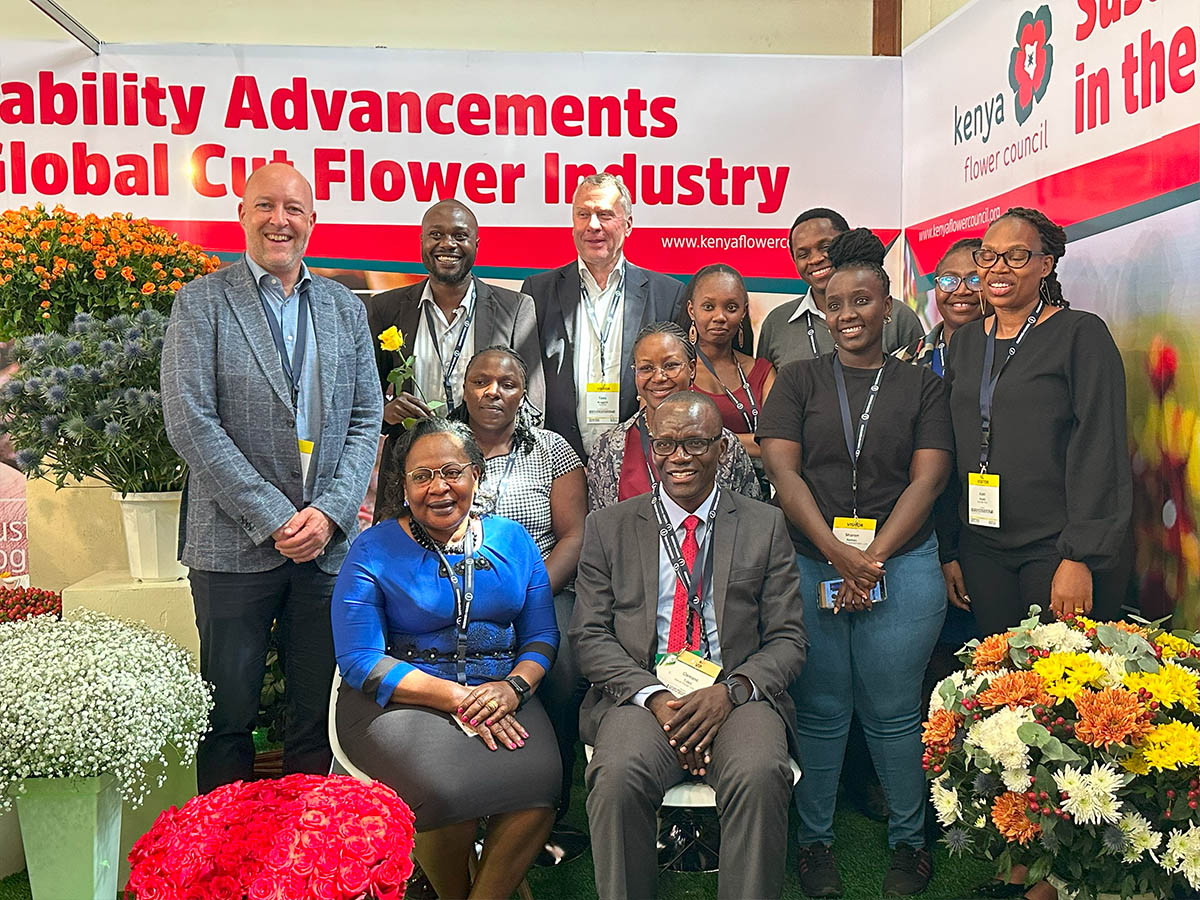
The Score: Where Are We Now?
According to the latest measurement, approximately 75% of the volume of flowers and plants traded by FSI members meets the requirements. "In production, that is even higher, around 85%."
That is impressive, but Jeroen is looking beyond the percentages. "The question is: what do we do with these figures? How do we further de-risk the sector, work on transparency, and accountability? And how do we help each other to improve?"
From ‘Storytelling’ to Hard Data
Storytelling is crucial, according to Jeroen. "As a sector, we are so blessed with our product, and we can tell so many fantastic stories about the happiness that flowers bring, about social impact on farms, about water conservation. But then it has to be right."
That is why FSI advocates transparency. Not as a marketing trick, but as a condition for trust. "If someone asks: where does this bouquet come from? Then you have to be able to tell a good and honest story."
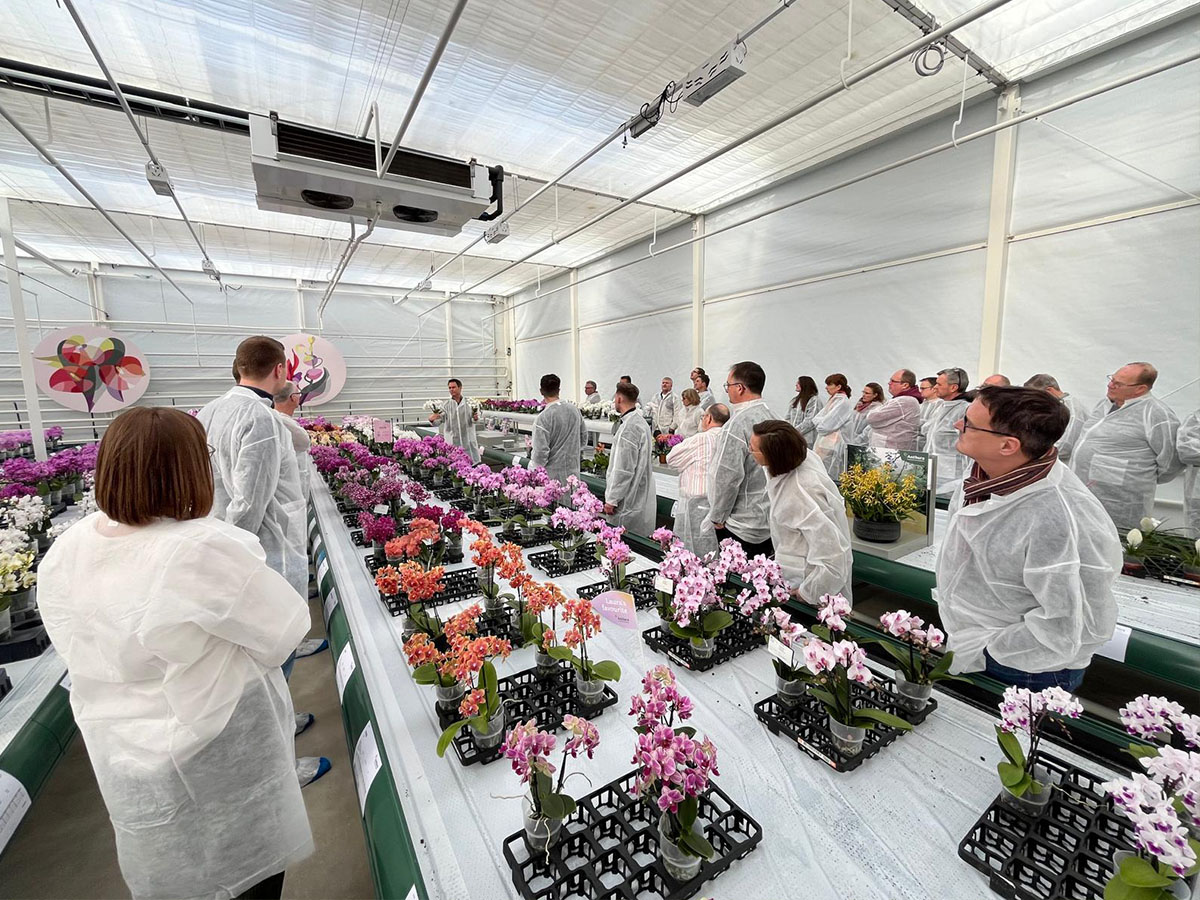
What Comes After 2030?
The name FSI2025 has now become FSI2030. But what happens after that?
"Maybe we'll stop then," says Jeroen. "If everyone knows what to do, if the system works, and the sector is self-sufficient, then FSI doesn't necessarily have to continue to exist."
Yet he still sees plenty of work. For example, in the field of environmental footprints, biodiversity, packaging, and social impact. "We want to move towards a system in which we can structurally demonstrate: this is where we come from, this is the impact, and this is how we will further improve in the coming years."
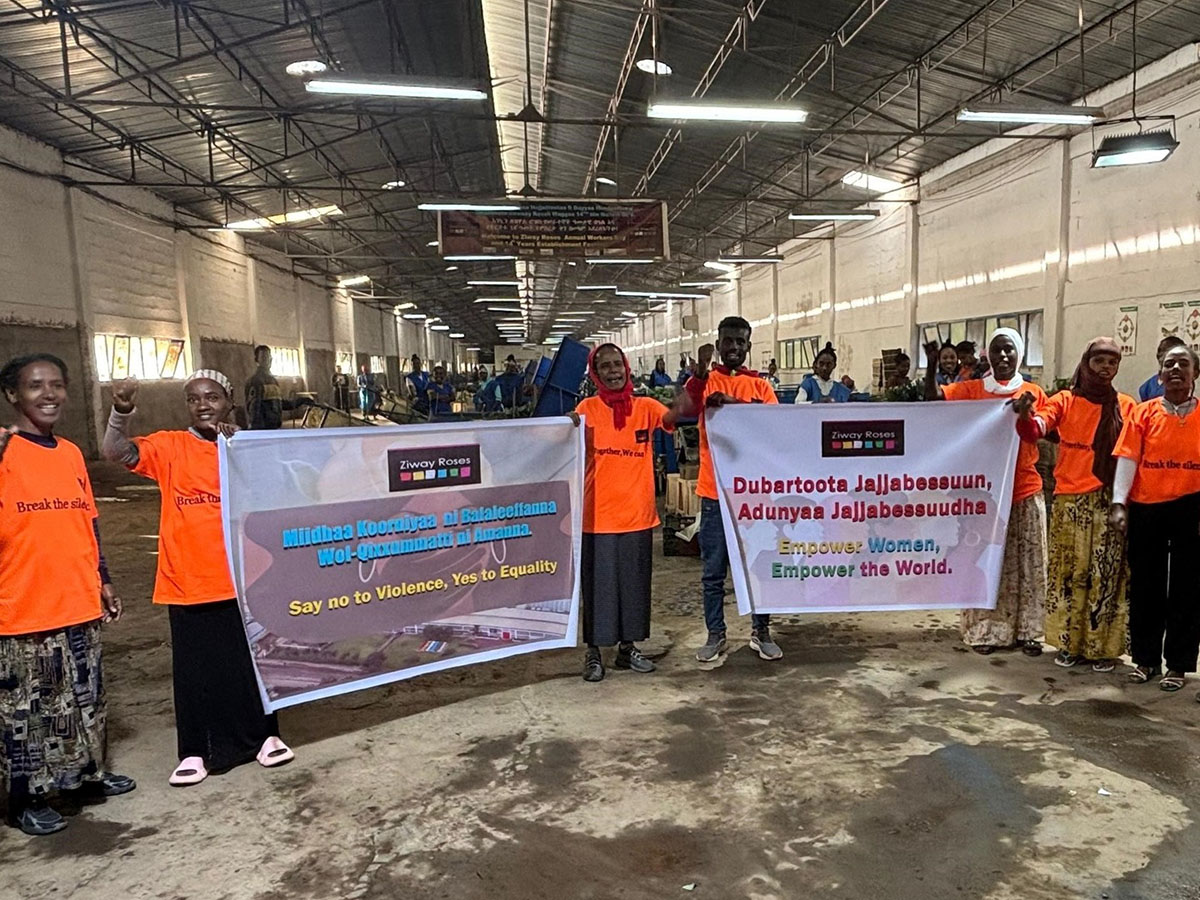
This campaign says: Together, we can break the silence, respect women, respect life. Her future is bright–don’t dim it. It's your body, your right, your choice.
Say no to violence, yes to equality. Empower women, empower the world! Report violence, seek help. Be a supporter, not a bystander. I stand for my sisters.
Photo by @holla_roses_bv.
The Consumer Is Not Concerned With Certification
An important point that Jeroen wants to make: consumers do not buy flowers for the certification. "They buy them because they are beautiful, because flowers make them happy, or because they want to make someone else happy."
That is why we must be careful not to flood the communication towards consumers with 'sustainable' claims. "You must be able to say: this flower or plant is beautiful. And attach a truthful story to its seasonality, color, shape, or how it helps people on farms to earn a decent living. Please enjoy it."
And that requires good basic conditions (taking away the dissatisfiers, as Jeroen calls them) and only then the experience (the delighters). "First, make sure it is clean, grown responsibly. Only then can you tell the story about color, scent, seasonality, and origin."
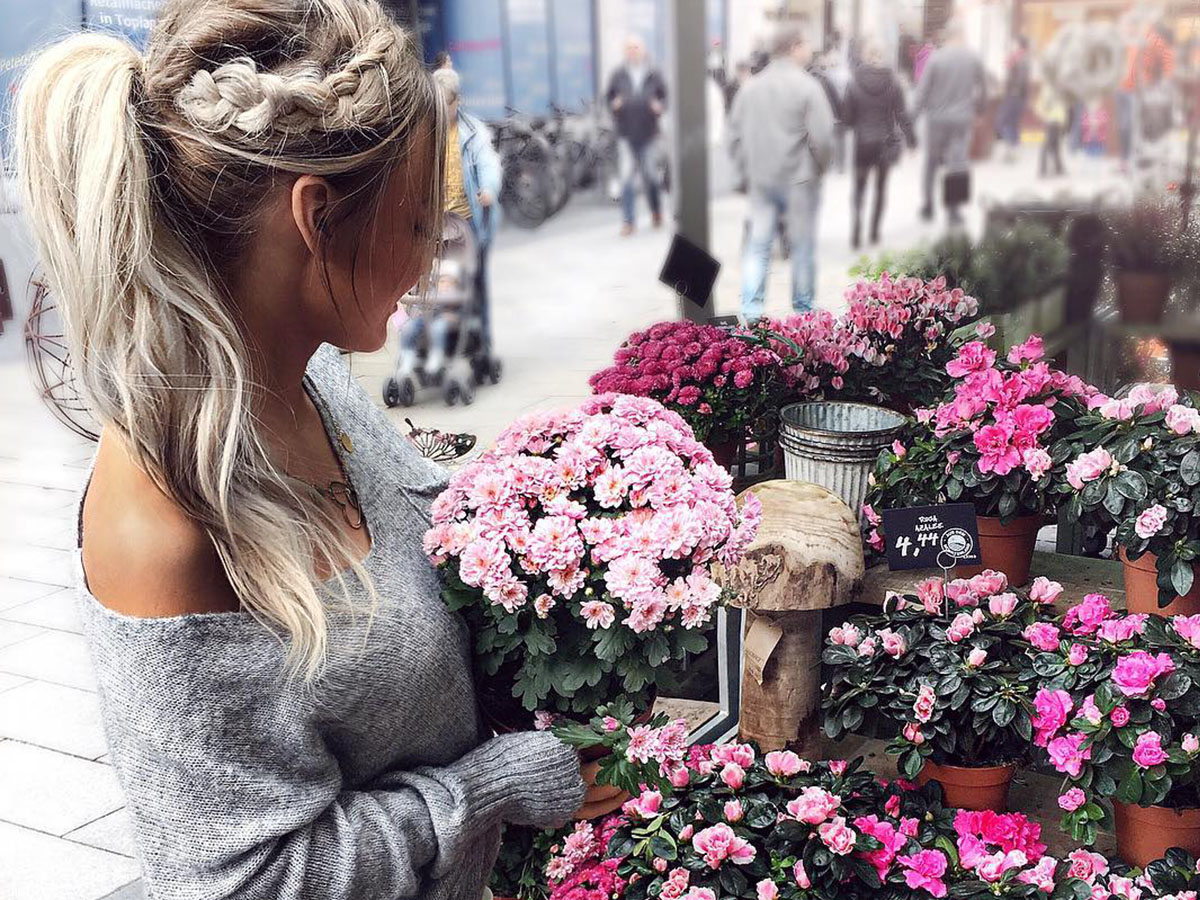
Certification as an Intermediate Step
For Jeroen, certification is an intermediate phase. "It is part of the development we are going through. But ultimately we want to move towards something better: continuous improvement based on reliable data, benchmarks, and collaboration."
And that also includes a call to the sector: "Be humble. Work together. Share data. Dare to be open. Do better. Only then can we take that step."

Finally, Where Are the Real Challenges?
"No longer in certification," says Jeroen firmly. "That is done. The real challenge lies in the next steps, measuring and improving impact. We have to make sure that we know where we stand, and that we do something on top of that every time. So that we meet market requirements and always exceed consumer expectations."
Sustainability is therefore not an end goal, but a way of working. Not always easy. Often messy. But great to work on together and with a lot of potential to make a difference. And if it is up to FSI, the sector is working hard on that.
All photos by and courtesy of Jeroen Oudheusden, unless otherwise mentioned.

